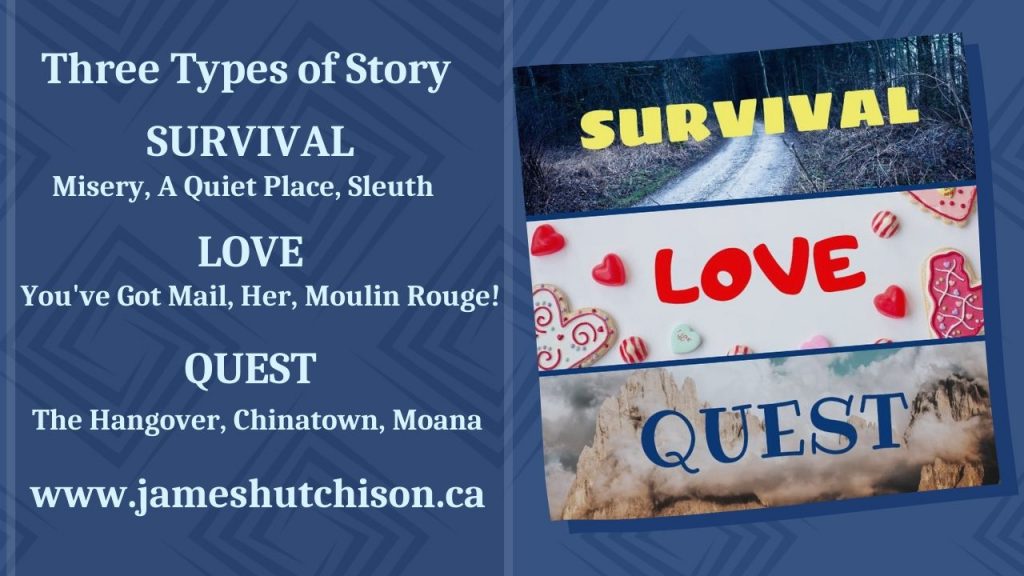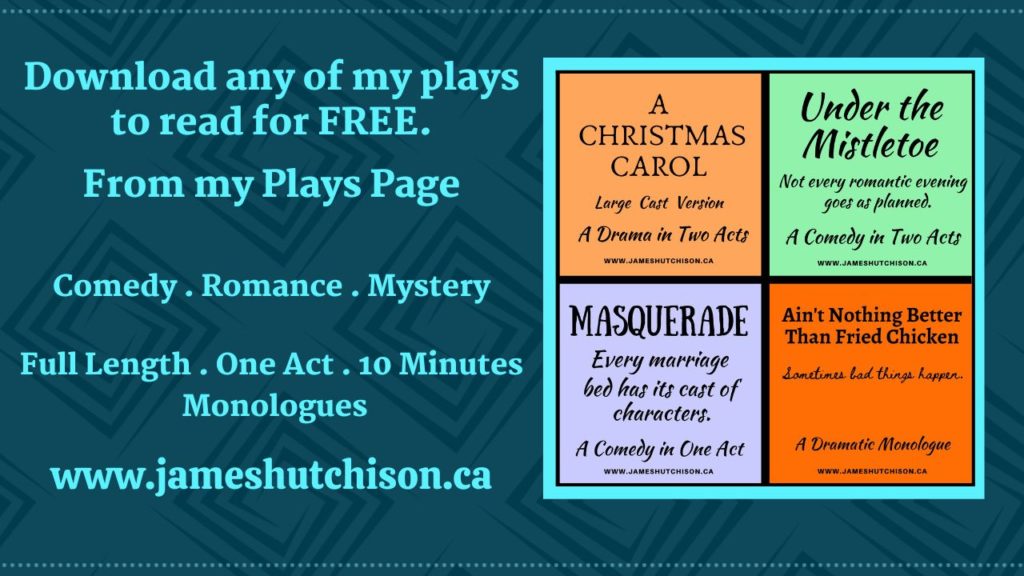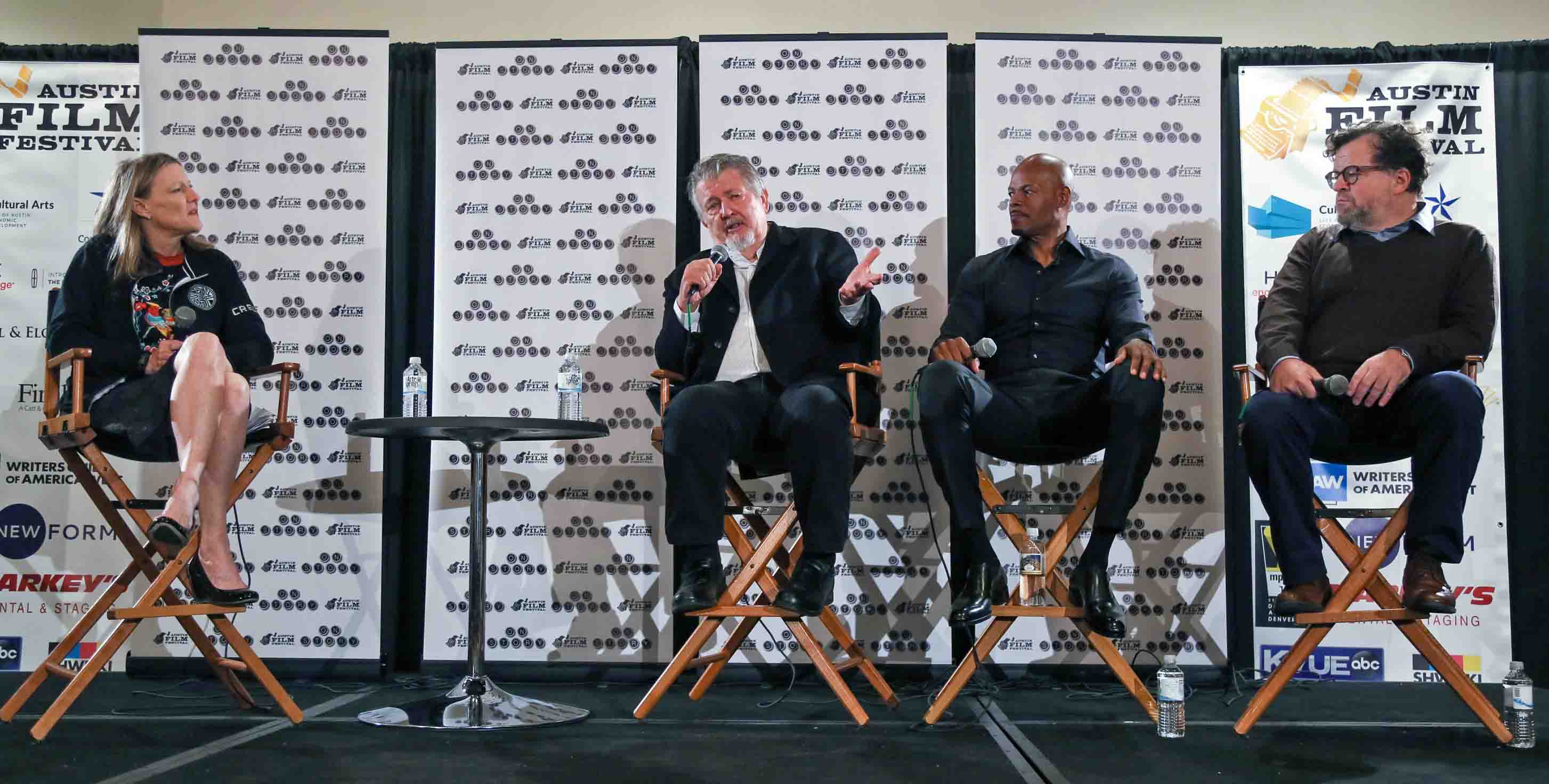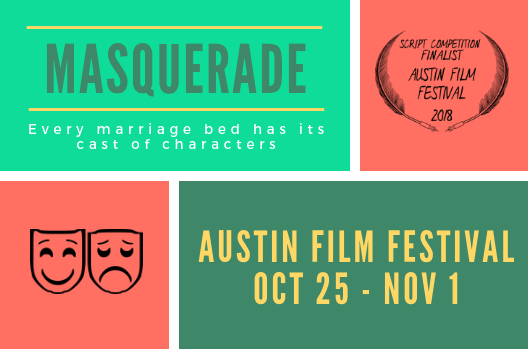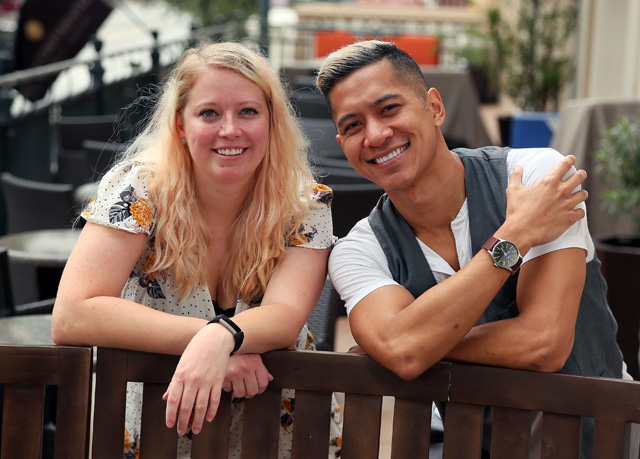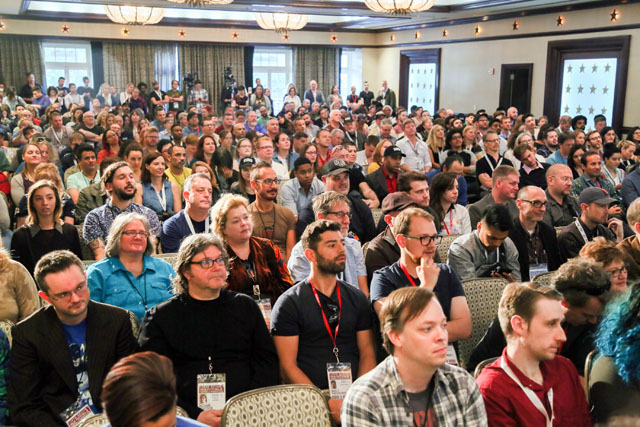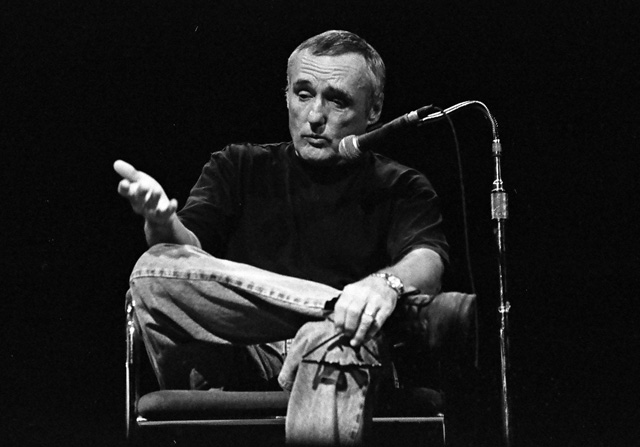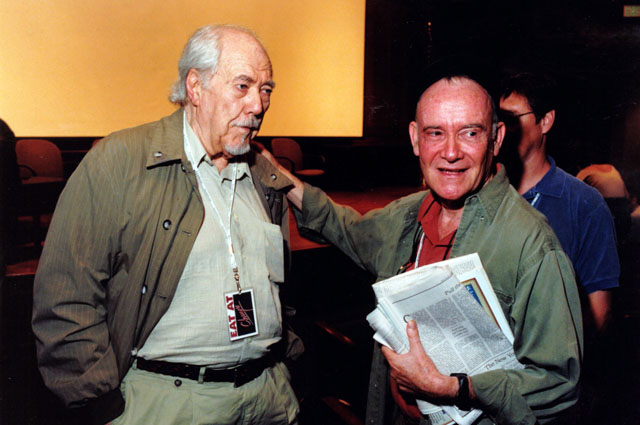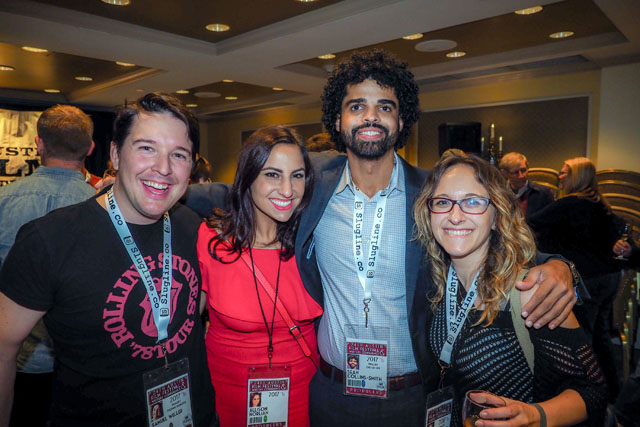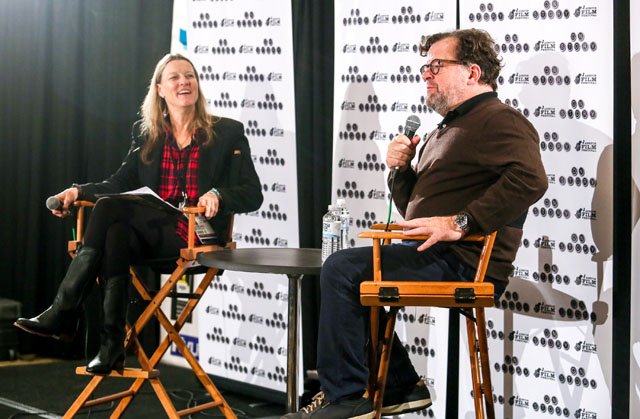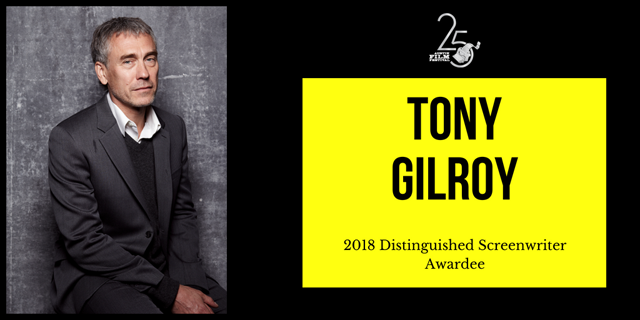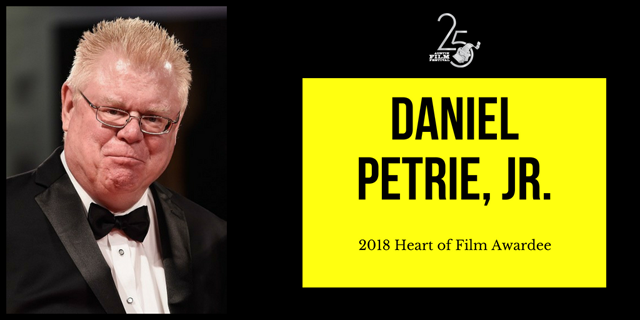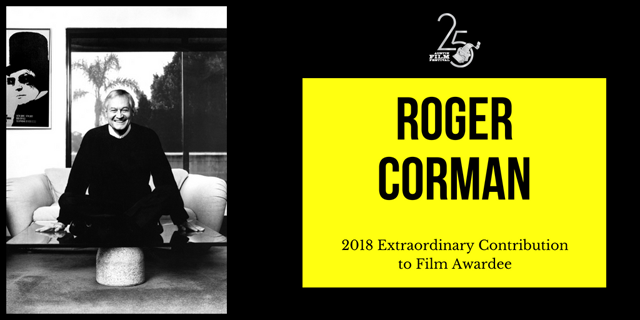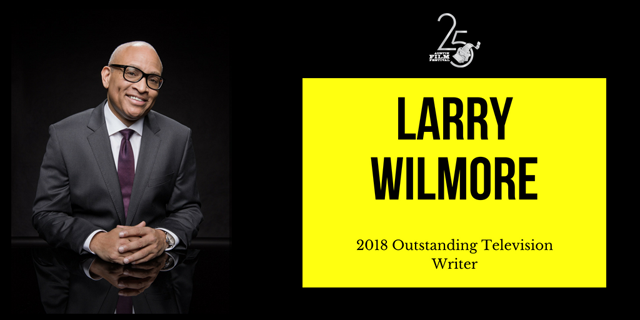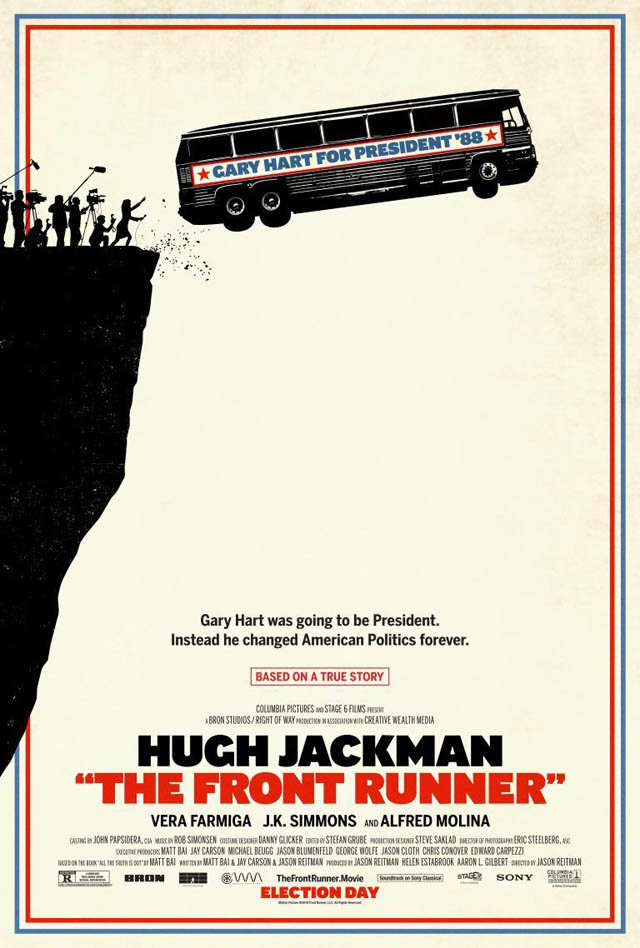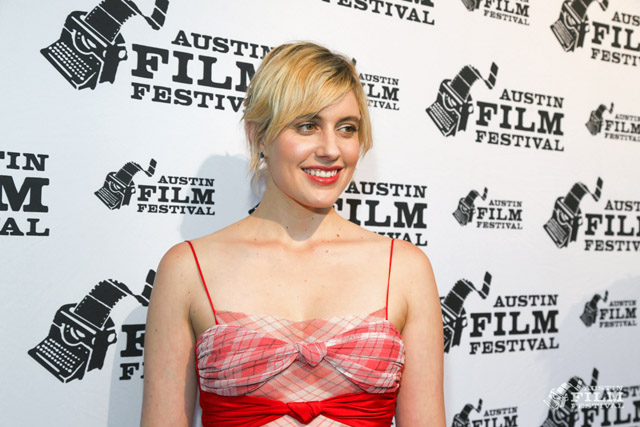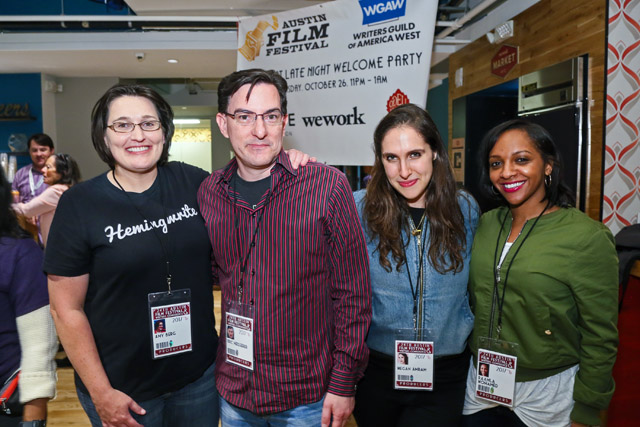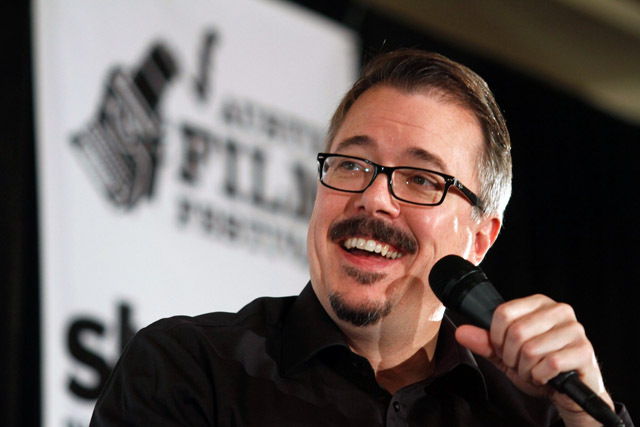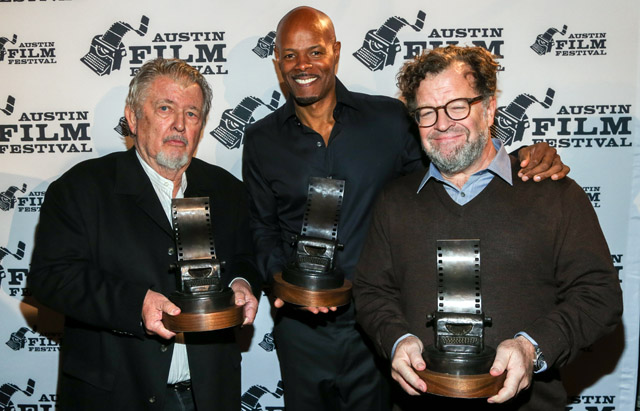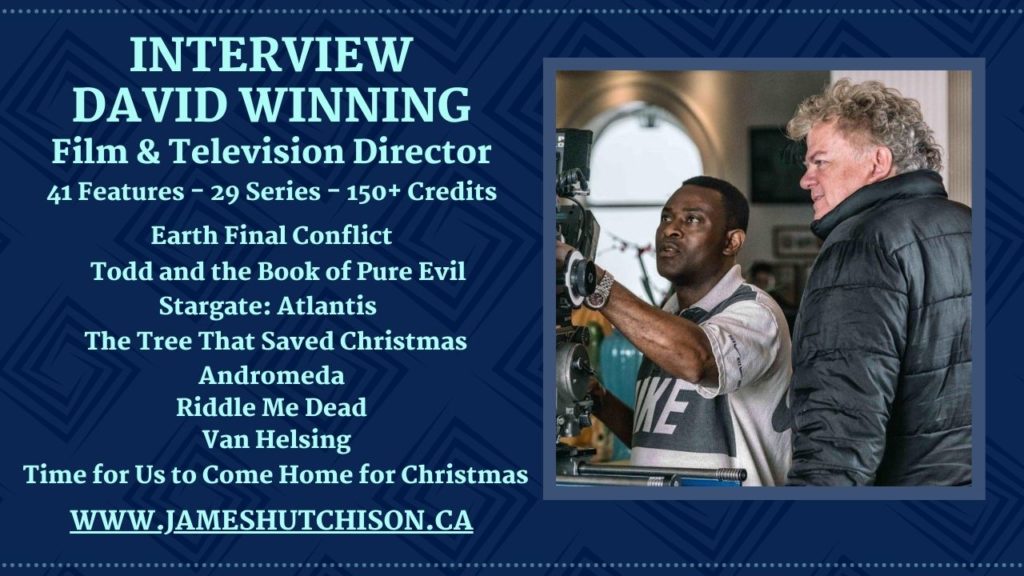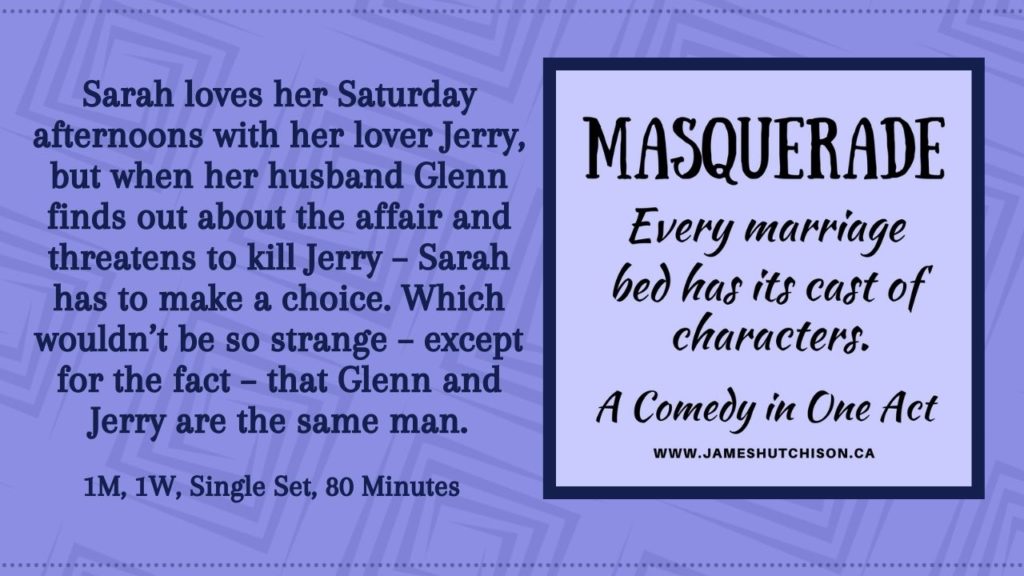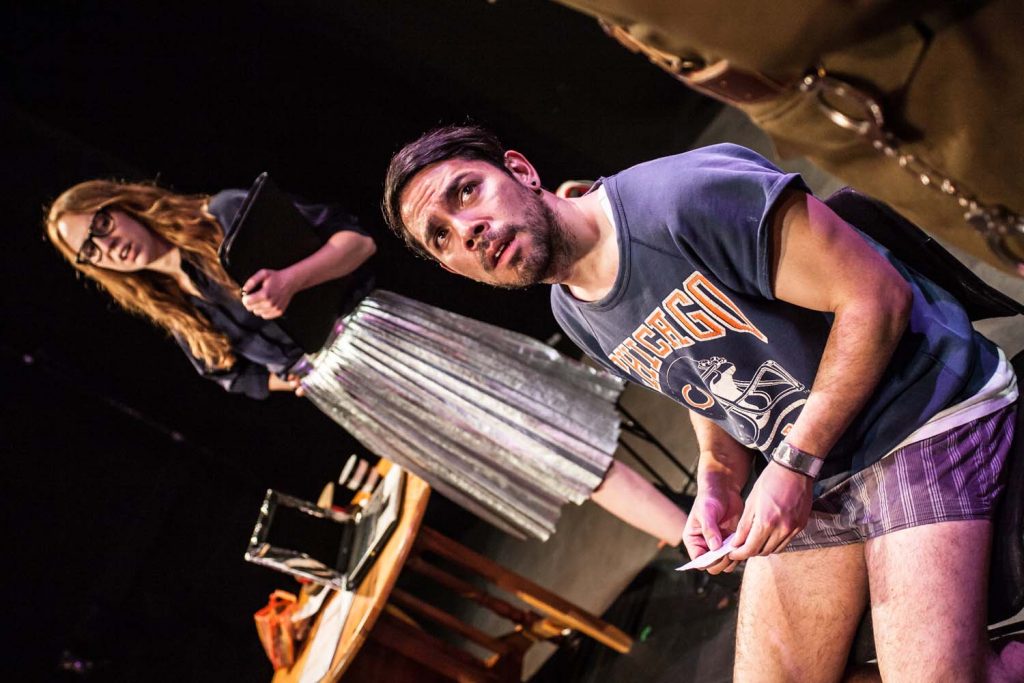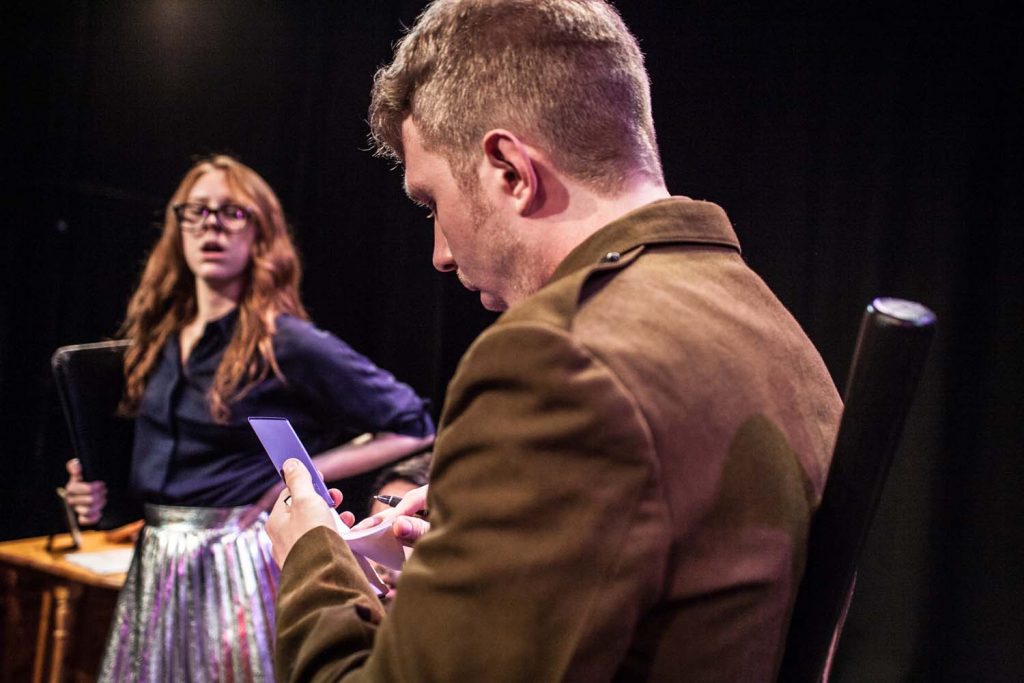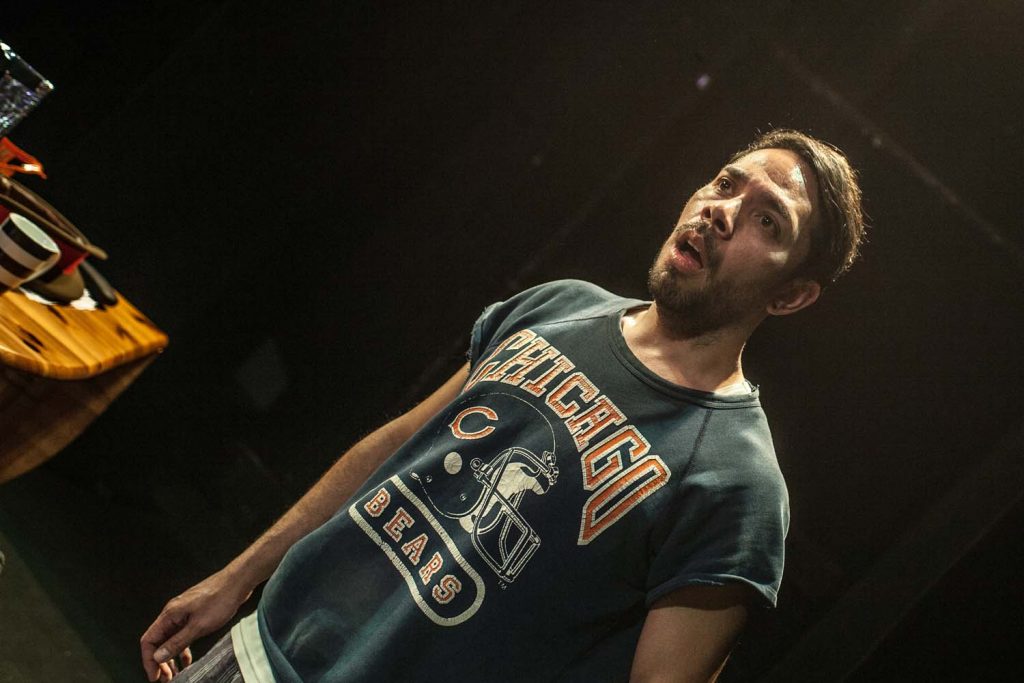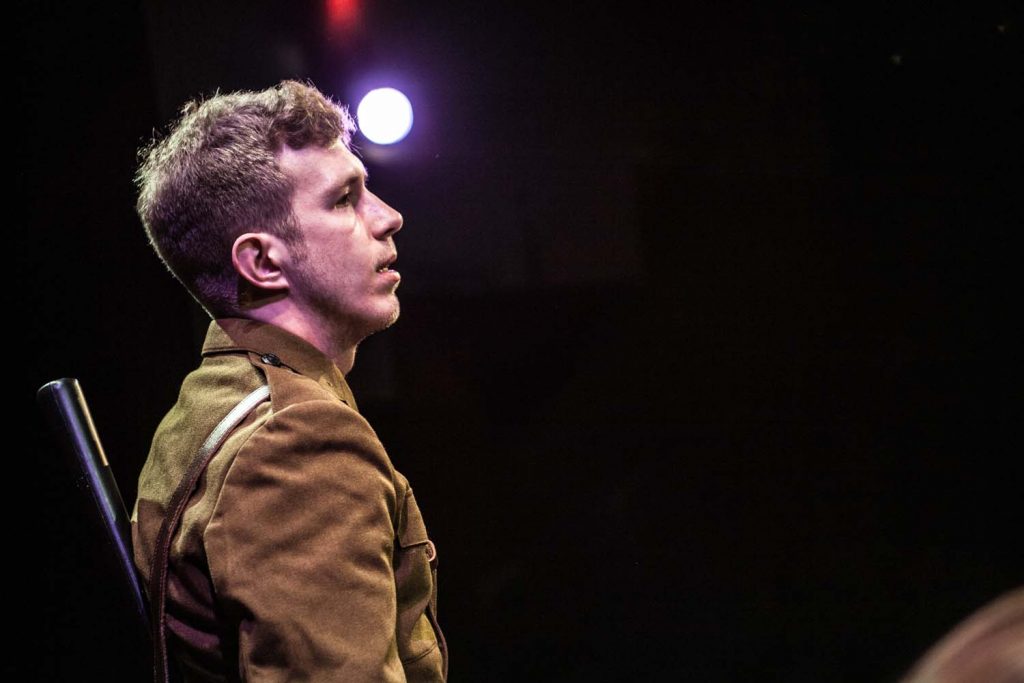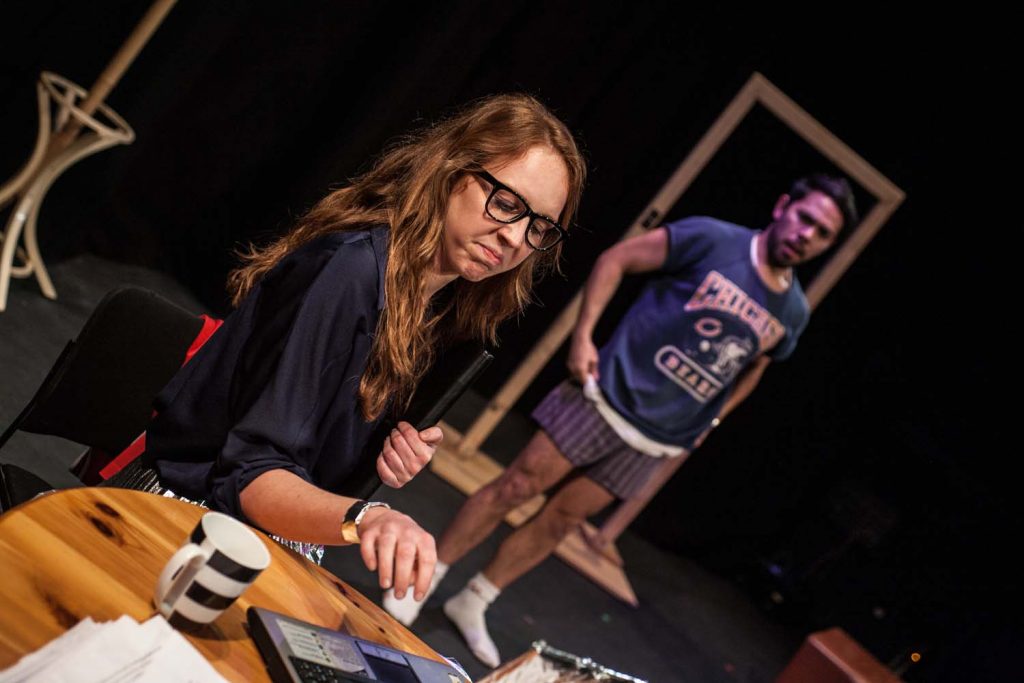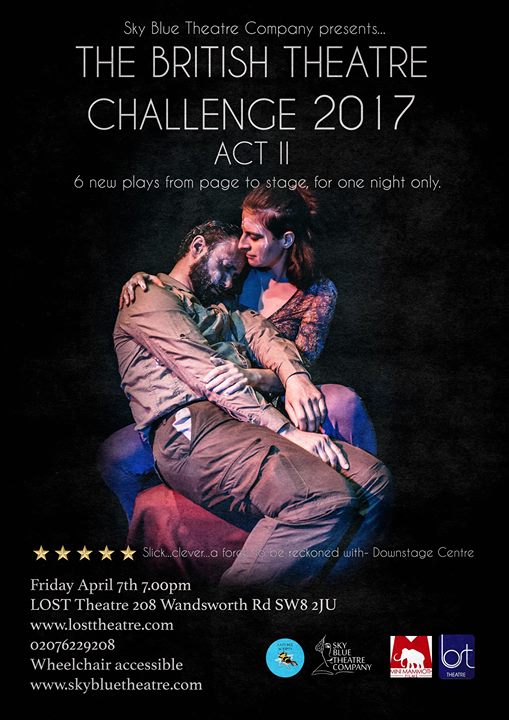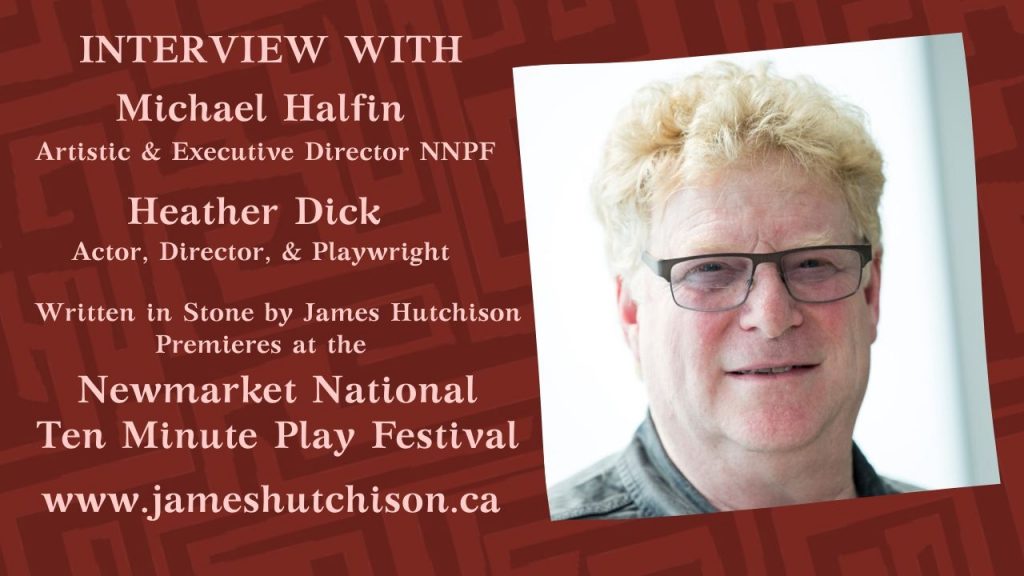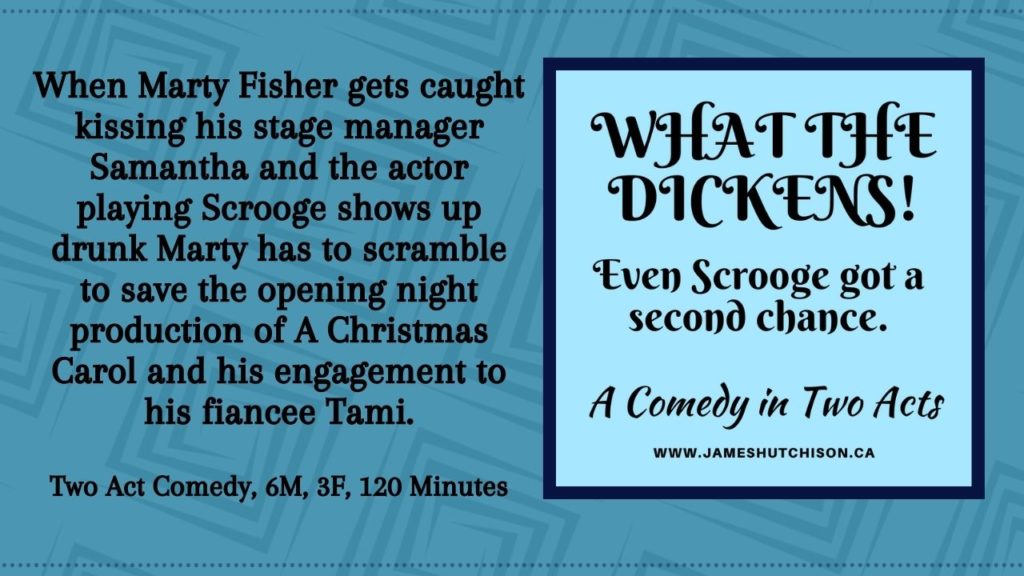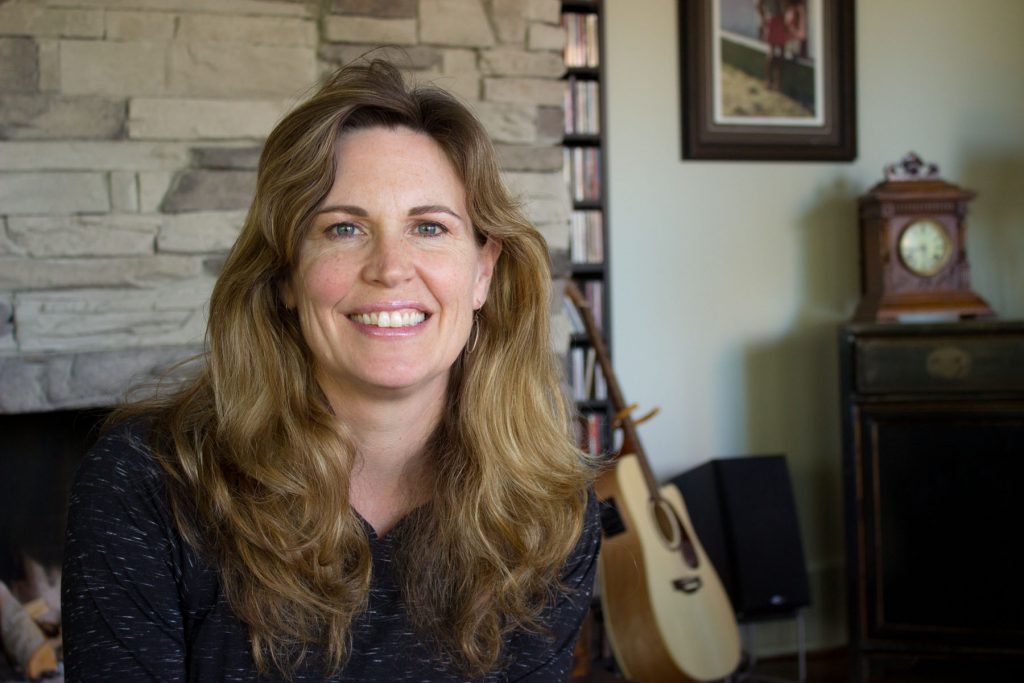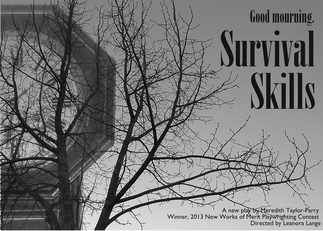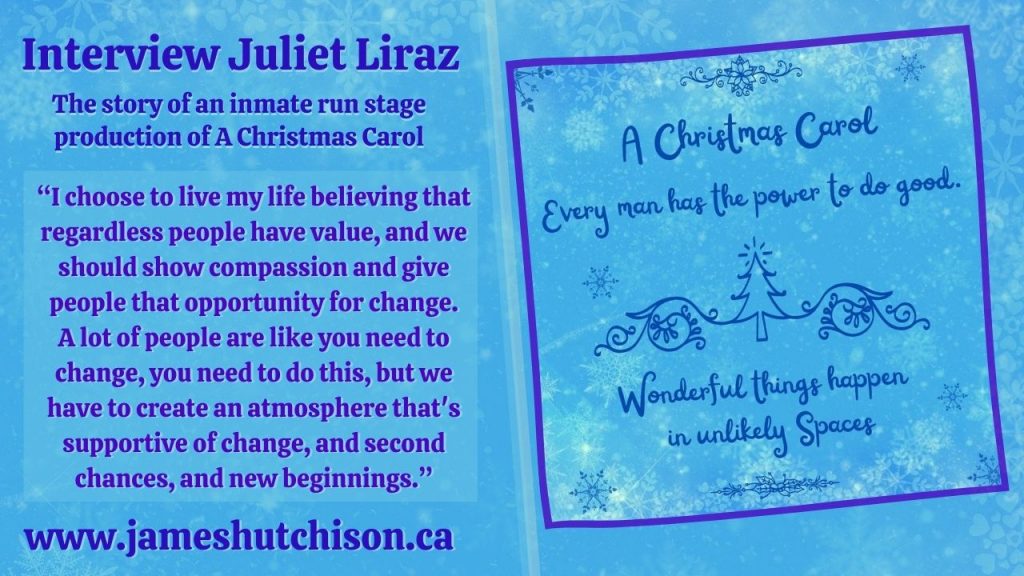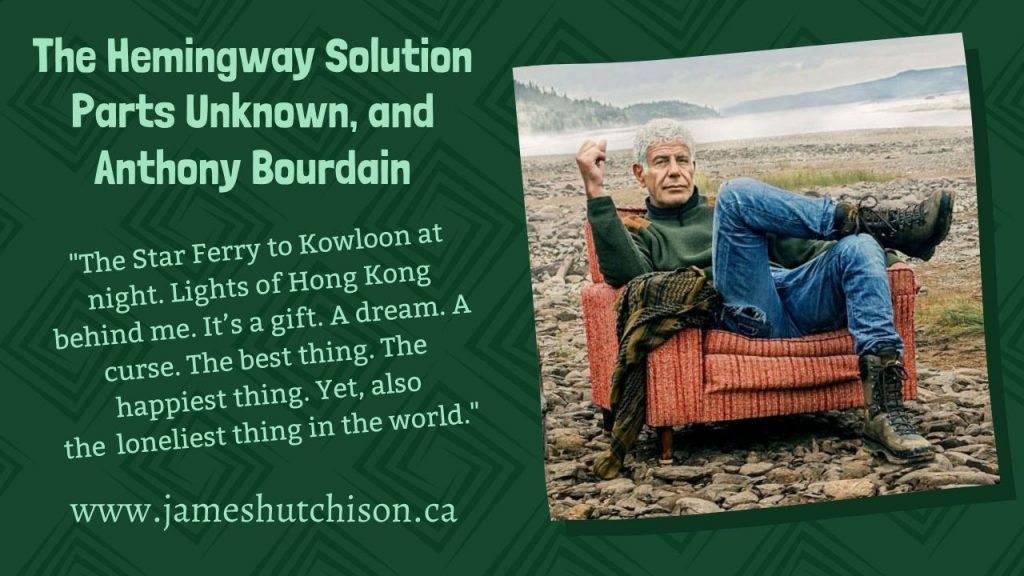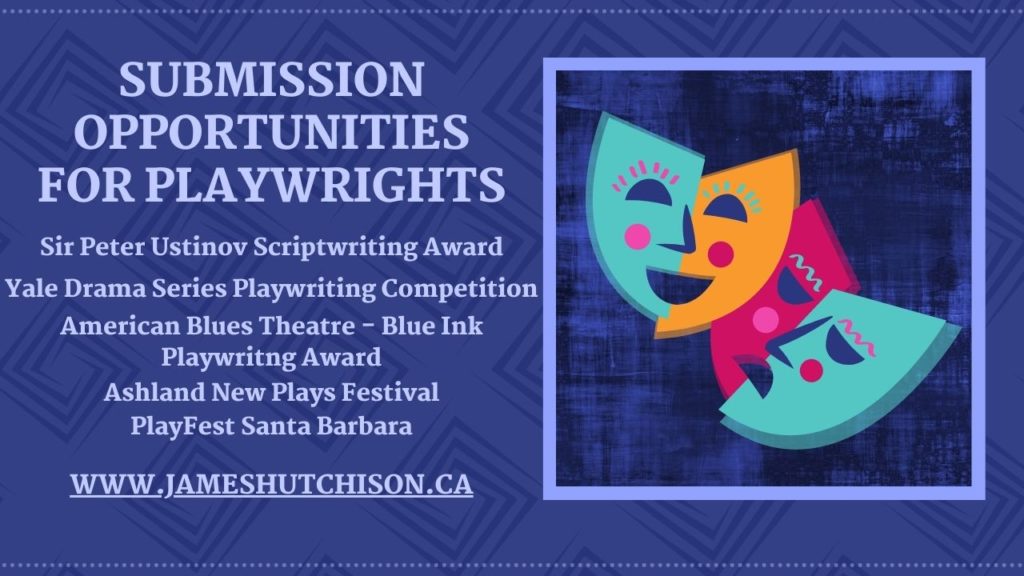
I’ve listed several submission opportunities and conferences for playwrights and provided a short description as well as a link to each opportunity’s website for further information. Please check out the submission guidelines for each festival or playwriting development opportunity before deciding whether or not you want to submit your work. Listing these opportunities is in no way an endorsement. If the deadline has passed then take note for the following year.
Last updated November 2023.
The Great Canadian Playwright Showcase
Two-thirds of Canadian playwrights agree that greater compensation and access to programming opportunities would provide the highest impact in satisfying their current needs as a playwright.*
*Source: Casemore, L. (2021). Surveying the Landscape: The New Play Ecology in Canada Alberta Playwrights’ Network.
TGCPS is a networking event to foster production possibilities by uniting creatives, coordinators, and crew with theatre industry decision-makers for a few spring days in Grande Prairie, Alberta.
This first edition of TGCPS invites delegates to meet with each other and experience new frontiers on an epic journey of discovery. TGCPS No. 1 kicks off in Alberta’s hidden treasure of the north, Grande Prairie. The expedition takes place May 10 -13, 2024, when a hardy group of intrepid souls from across Canada and abroad meet to exchange perspectives, languages, cultures, and ideas. Join us at the Trading Post where the future of Canadian theatre takes shape.
Conference Details: The Great Canadian Playwright Showcase
When Words Collide – Writers Conference
Where: Calgary, Alberta, Canada
When: August 16 – 18, 2024
When Words Collide is a festival for readers, writers, artists and publishers of commercial and literary fiction, including genre, YA, children’s books, poetry, and much more. WWC is a festival that welcomes all lovers of the written word regardless of age, background, citizenship, disabilities, sex, educational level, ethnicity, family status, gender, gender identity, experiences, race, religion, or sexual orientation.
Festival Information: When Words Collide
The Relentless Award
Applications are limited to shows by writers with United States citizenship, those who possess or are in the process of obtaining a green card, those with student, immigrant, or work visas for the United States, or anyone who currently resides in the United States and has lived here for at least four years.
The Relentless Award was founded in honour of Philip Seymour Hoffman and places special emphasis on works that are fearless in their choice of subject matter, featuring passionate voices that are relentlessly truthful. The winner along with finalists and semifinalists will also receive development opportunities through a series of staged readings at Theatre Row as well as at some of the top regional theatres in the country.
Submission details: The Relentless Award
The Alpine Fellowship 2024
The Alpine Fellowship is a charitable foundation that supports, commissions and showcases artists, writers, academics and playwrights. They are committed to discovering emerging talent, to disseminating new ideas and to sharing thoughts about art, literature and philosophy.
If you’re a writer, poet, academic, playwright or visual artist, then consider entering one of their prizes based on this year’s theme – Flourishing. There are cash prizes and you’ll be invited to attend their 2023 symposium.
The winner of the Theatre Prize will receive a cash prize to support the writing of their proposed play, and the runners-up will receive travel expense support that must be used to attend the 2023 symposium which will be held from August 10th-13th, 2023 in Fjällnäs, Sweden
Submission details: The Alpine Fellowship 2024
Vancouver Asian Canadian Theatre MSG Lab
vAct’s MSG Lab facilitates the creation and development of new theatrical work by emerging and mid-career Asian Canadian artists. The MSG Lab showcases stories from Asian Canadian perspectives and develops new works for future production opportunities. This year’s MSG Lab runs from May to December, with a series of 6 writers’ seminars and two 5-day writing/creation residencies (non-live-in).
During the MSG Lab, each writer will have a personally designed process that will propel the current script/proposal to a more fully realized version for an informal public presentation. Selected applicants will receive development support including:
- A $4000 stipend per project;
- 16 hours of in-studio workshop time with actors and collaborators
- Approximately 60 hours of dramaturgical support (inclusive of workshops and a public presentation);
- In consultation with the dramaturg, each writer will have the opportunity to design a personalized writing/creation process that best serves their creative needs.
The application deadline for the 2023 MSG Lab is Monday, February 27th, 2023.
Submission details: vAct’s MSG Lab
KHN Center for the Arts – Artist Residency
Application deadlines are March 1st and September 1st annually.
The Kimmel Harding Nelson Center for the Arts awards up to seventy juried residencies per year to established and emerging visual artists, writers, composers, and interdisciplinary artists from across the country and around the world. Residencies are available for 2 to 8 weeks stays. Each resident receives a $100 stipend per week, free housing, and a private studio.
The mission of the KHN Centre for the Arts is to support established and emerging writers, visual artists and composers by providing working and living environments that allow uninterrupted time for work, reflection and creative growth and to present and support arts-related programming that expands public awareness and appreciation of the arts.
Since 2001, KHN has hosted more than 50 working artists each year which include a combination of visual artists, writers, composers, and interdisciplinary artists. Each has found privacy in which to create along with ample opportunities to interact with fellow artists in the vibrant and friendly community of Nebraska City located an hour’s drive south of Omaha.
Application details: KHN Centre for the Arts – Artist Residency
Drama Notebook Submission Guidelines Summer/Fall 2023
Drama Notebook is accepting play script submissions from playwrights, teachers, and actors who have written scripts or scenes for children and teens. Currently looking for plays based on popular works in the public domain, such as Peter Pan, Beauty and the Beast, Pinocchio, The Jungle Book, The Legend of Sleepy Hollow, Anne of Green Gables, The Scarlet Letter, The Sword in the Stone, The Velveteen Rabbit, Swiss Family Robinson, and others. Plays that are of a timely or educational nature, such as Christmas plays, Cinco de Mayo or Day of the Dead plays, plays that explain nature, geography, math, history or science. Also, looking for plays by BIPOC writers and plays that celebrate cultural diversity and equity. Complete information about Drama Notebook and how the company works with authors can be found on their website.
Submission details: Drama Notebook Play Submission Opportunities
National Alliance for Musical Theatre Annual Festival of New Musicals
Musicals that are complete and ready for readings, workshops and/or productions.
The NAMT’s Festival of New Musicals is the cornerstone of NAMT’s mission to be a catalyst for nurturing musical theatre development and production. Every year, we feature eight musicals in short presentations for an audience of over 700 industry professionals. We look for new musicals at all stages of development from the broadest possible range of voices.
Submission details: National Alliance for Musical Theatre Festival of New Musicals
Dramatist Guild of America – End of Play
End of Play is open to both members and non-members of the Dramatists Guild. Writers of all backgrounds are encouraged to participate, and prior writing experience is not necessary.
Starting April 1, 2024, participating playwrights, composers, lyricists, and librettists will be challenged to write a brand new play or musical, or revise an old draft. Through a combination of community-building events, motivation, and that all-important deadline, DG hopes to inspire countless new works.
End of Play is an annual initiative, created by the Dramatists Guild, to incentivize the completion of new plays, scores, or songs over the period of one month. Since the launch of End of Play in 2020, hundreds of participants from all over the world have connected with one another, uniting to overcome the obstacles that stand in the way of creating new theatrical work.
Each year, writers set goals for themselves at the beginning of End of Play month and share their weekly progress with the community. Goals may include writing a new full-length play/musical, two one-act plays/musicals, or completing a second draft of any of the above. Ultimately, the aim of End of Play is to get writers to the finish line with inspirational prompts, motivational events, and the support of their End of Play community.
Participation details: Dramatist Guild of America – End of Play
Theatre 503 – International Playwriting Award
Theatre503 is the home of new writers and a launchpad for the artists who bring their words to life. Theatre 503 supports new writers and champions their role in the theatre ecology. Their goal is to find exceptional playwrights who will define the canon for the next generation. Learning and career development are at the core of what they do.
Theatre 503 is a 63-seat theatre based in Battersea, London. They stage the work of more first-time writers than any other theatre in the country and programme over 100 new pieces of writing every year ranging from short plays to full runs of superb drama. They believe the most important element in a writer’s development is to see their work developed through to a full production on stage, performed to the highest professional standard in front of an audience.
Submission details: Theatre 503 – International Playwriting Award
The Magnetic Theatre 5th Annual One Act Play Festival
Plays 5-15 minutes in length.
The Magnetic Theatre produces plays that have not been previously produced. Playwrights accepted into the One Act Play Festival will be notified by May 30, 2023. Playwrights, actors, and production team members participating in the Festival receive a small stipend. The festival will be held in November 2024.
Submission details: The Magnetic Theatre – 5th Annual One Act Play Festival
The Helene Wurlitzer Foundation Artist Residency Program
The Foundation accepts applications from painters, poets, sculptors, writers, playwrights, screenwriters, composers, photographers, and filmmakers of national and international origin.
The Helene Wurlitzer Foundation of New Mexico (HWF) is a private, 501(c)(3) non-profit, educational and charitable organization committed to supporting the arts. The Foundation offers three months of rent-free and utility-paid housing to people who specialize in the creative arts. Our eleven artist casitas, or guest houses, are fully furnished and provide residents with a peaceful setting in which to pursue their creative endeavours. Applications are reviewed by a selection committee consisting of professionals who specialize in the artistic discipline of the applicant. Numerous jurors serve on committees for each: visual arts, music composers, writers, poets, playwrights, and filmmakers. Jurors, who know nothing about the artist’s demographics, score in five categories based purely on the merit of the applicant’s creative work samples. The Foundation provides residency grants to creative artists from all over the world, regardless of age, experience, nationality, ethnicity, gender, or sexual preference.
Submission details: The Helene Wurlitzer Foundation Artist Residency Program
National Theatre Playwriting Masterclasses
The National Theatre London offers a series of Masterclasses that provide different techniques and insights into the process of play development. Each session uses discussions, exercises, and a Q&A with a different playwright each month. Playwrights leading the sessions will be associated with the National Theatre and will have work currently on at the National Theatre or coming up or recently staged by the National Theatre. Sessions are £25, run 2 hours and are provided through ZOOM. This is an ongoing series.
Information: National Theatre Playwriting Masterclasses
Jewish Plays Project Annual National Jewish Playwriting Contest
Full Length Plays a minimum of 65 minutes in length
The Jewish Plays Project identifies, develops, and presents new works of theatre through one-of-a-kind explorations of contemporary Jewish identity between audiences, artists, and patrons. Submit unproduced full-length (65+minutes) plays and musicals that are written primarily in English and focus on aspects of 21st Century Jewish identity, culture, ideas, and the complex and intersectional nature of contemporary Jewish life.
Submission details: Jewish Plays Project Annual National Jewish Playwriting Contest
Quannapowitt Players – Suburban Holidays XII!
Plays 10 to 20 minutes in length
QP is seeking new plays for Suburban Holidays XI for 2022, our popular annual holiday-themed play festival and fundraiser. We are proud to be presenting our eleventh year of holiday shows! Play submissions should be between ten and twenty minutes in length and focus on a holiday. All holidays are welcome! In the past we have produced plays centered on Arbor Day, Valentine’s Day, New Year’s Day, Halloween, Mother’s Day, Kwanza, Hanukkah, and Christmas, just to list a few! We appreciate large casts (within reason), and also welcome smaller shows. Plays featuring children are also welcome. Also, please keep in mind that we do try to keep the festival family-friendly, so plays with excessive profanity are discouraged.
Submission details: Quannapowitt Players – Suburban Holidays XI!
Theatre Rocks National Playwriting Competition
Full-Length Plays
US Residents
Full-length plays that have not been published or produced professionally. Previous non-equity productions are accepted. Submissions open on November 1, 2023, and close on April 19, 2024.
Submission details: Theatre Rocks National Playwriting Competition
Drip Action Theatre Trail 2022 One-Act Plays
Short plays 30 to 40 minutes in length.
Plays should be between 30 and 40 minutes long, with practicable casting, props and effects and a maximum of five performers.
Submission details: Drip Action Theatre Trail 2022
Golden Thread Productions ReOrient Festival of Short Plays
Plays that are 10 – 30 Minutes in Length
Playwrights of Middle Eastern Heritage
Produced once every two years, ReOrient Festival showcases the diversity of voices and aesthetics from the Middle East and its worldwide diaspora in a curated festival of short plays produced biennially in San Francisco. Playwrights should be of Middle Eastern heritage. The submission deadline for consideration in ReOrient Festival 2023 is July 30, 2022.
Submission details: Golden Thread Productions – ReOrient Festival of Short Plays Submission Opportunities
Gallery Players Black Box New Play Festival
Plays that are 10 to 30 Minutes in Length
Gallery Players is seeking plays for its 26th Annual Black Box New Play Festival to be held in January 25 – February 4th. Each play selected will be given a black box production with non-Equity actors. Playwrights must be available via Zoom or some other virtual venue for rehearsals and use this as an opportunity to continue work on their play.
Submission details: Gallery Players Black Box New Play Festival
VetRep 10 Minute and Full-Length Play Submissions
Full-length and 10-minute Plays
US Veterans – Military, Law Enforcement, Fire Service, EMS, Foreign Service, Intelligence Service, DoD employee, DoD Contractor or Immediate Family of the Service Member.
VetRep provides opportunities for veterans interested in writing. Until July 3, 2024, VetRep is accepting both 10-minute and full-length plays. Full-length competition winners will receive a $10,000 grant, second place finalists will receive a $7,500 grant, and the third-place finalist will receive a $5,000 grant. The winner of the 10-minute play competition will receive a $1,000 grant, the second-place finalist will receive a $750 grant and the third-place finalist will receive a $500 grant.
Submission details: VetRep 10 Minute and Full-Length Play Submissions
Vivid Stage Seeking Full-Length Plays
Full-Length comedies and dramas
Submissions are accepted from November 1 to December 31. Scripts should not be submitted from April to November. One script per writer with a maximum cast of 9 and must include realistic and substantial roles for women. No musicals.
Submission details: Vivid Stage Seeking Full-Length Plays
Screen Craft Stage Play Writing Competition
Some of the greatest films ever written were adapted from stage plays. ScreenCraft’s Stage Play Competition is a great opportunity to have your work considered by influential writers and industry professionals. Drawing on a long history of playwrights transitioning to screenwriting, this competition seeks to celebrate excellent plays that have great film or TV adaptation potential.
Submission details: Screen Craft Stage Play Writing Competition
OFF OFF BROADWAY SHORT PLAY FESTIVAL
Plays no longer than 15-minutes in length.
The OOB Festival is one of Samuel French/Concord Theatricals’ primary initiatives to work with the next wave of emerging playwrights. Come summer 2022, we will present 30 short plays selected through an open submissions process and evaluated by a distinguished panel of judges. The 30 plays are narrowed down to 10-12 finalists, 6 of which are selected by the Concord Theatricals staff to be licensed for future productions and published in an anthology of short plays that will become the 47th edition of our Off Off Broadway Festival Plays series.
Submission details: OOB Short Play Festival
Native Voices: Annual Call for Scripts 2021-2022
Native Voices is seeking short plays and full-length plays written for the stage by American Indian, Alaska Native, Native Hawaiian, and First Nation Artists
Short Plays – Many Native stories involve a Trickster, a cunning, crafty, clever, mischief-making being who often teaches humankind how to be while embodying what not to be. For our 2022 Short Play Festival, we invite you to tell a story inspired by a Trickster. These plays can be funny, sad, triumphant, or anything in between. The only rule: they must be 10 minutes long and must incorporate the “Trickster” theme.
Full-Length Plays – Native Voices is currently accepting submissions of full-length plays (60+ pages) by American Indian, Alaska Native, Native Hawaiian, and First Nations playwrights addressing all themes and topics. The 2023 Playwrights Retreat and 29th Festival of New Plays brings artists to Los Angeles to work on a selected number of plays through a rigorous directorial and dramaturgical commitment for 8–10 days in June. The Retreat culminates in public staged readings of the plays at the Autry Museum of the American West in Los Angeles. Selected playwrights receive artistic support as well as an honorarium; out-of-town artists receive roundtrip airfare plus lodging in Southern California.
2023 OPEN Submission for Production Consideration – Native Voices accept scripts all year long.
Submission details: Native Voices: Annual Call for Scripts
PWC – Many Voices Fellowships
Full-Length plays
Black Playwrights, Playwrights of Colour, and Indigenous Playwrights residing in the U.S. with the legal right to work.
The Many Voices Fellowship is intended to support early-career Black playwrights, playwrights of colour, and/or Indigenous playwrights who demonstrate extraordinary potential, artistic vision, and a commitment to spending a year in residence in Minnesota developing their work with the Playwrights’ Center in community with other fellows. The fellowship is additionally supported by a professional theatre artist mentor. Many Voices Fellows will receive a $20,000 stipend and $3,000 in development support. Full length plays by Black Playwrights, Playwrights of Colour, Indigenous Playwrights residing in the U.S. with the legal right to work
Submission details: PWC Many Voices Fellowship
University of Calgary – Canadian Writer-in-Residence
We encourage applications from writers of all genres who have one to four published and/or professionally performed works to their credit. This residency is a full-time term position, dates are non-negotiable.
The Canadian Writer-in-Residence is expected to spend 50% of their time working on their own writing, and 50% of their time on community outreach, including one-on-one consultations with the public and public lectures or readings. We encourage candidates to propose their own initiatives for community engagement. A background or demonstrated interest in community engagement — such as experience teaching or mentoring writers — is an asset.
Submission details: University of Calgary – Canadian Writer-in-Residence
The Neukom Institute Literary Arts Awards for Playwriting
Full-length plays and other full-length works for theatre that address the question, “What does it mean to be human in a computerized world?”
Submission details: The Neukom Institute Literary Arts Award for Playwriting
Lake Tahoe WordWave One-Act Play Competition
One-Act Plays up to 60 minutes
Each year three one-act plays no longer than 60 minutes are selected and playwrights receive a $500 cash prize and are invited to a 2-night stay in South Lake Tahoe in order to see their work directed and produced as a staged reading at the historic Valhalla Boathouse Theatre.
Submission details: Lake Tahoe WordWave One-Act Play Competition
Lanford Willson New American Play Festival
Full-Length and Short-Plays
The Lanford Wilson New American Play Festival honours new American plays that provide dynamic performance opportunities for college-aged actors. Submitted plays should not have had a previous full production. Workshops and readings are fine.
Submission details: Lanford Wilson New American Play Festival
Premiere Stages – The Premiere Play Festival
Full-Length Plays
Playwrights from New York, New Jersey, Connecticut, Pennsylvania, and Deleware
Premiere Stages accepts submissions of unproduced unpublished full-length plays written by playwrights affiliated with the greater metropolitan area. (New York, New Jersey, Connecticut, Pennsylvania, and Deleware) All plays submitted to the festival are evaluated by a panel of professional theatre producers, directors, dramaturgs, playwrights, and publishers. Four to five finalists are selected for a public Equity. Premiere Stages is committed to supporting a diverse group of writers, and playwrights of all backgrounds, ages, and experience levels are encouraged to apply.
Submission details: The Premiere Play Festival
Titchfield Festival Theatre Playwriting Competition
Full-Length Plays no longer than 120 minutes
UK Writers
All plays are read anonymously by a panel of readers appointed by TFT.(made up of a diverse mix of patrons, volunteers, language and literature professionals, all from a wide age range and geographical area). This panel creates a shortlist for a final expert panel. This final panel of readers includes Artistic Directors, Professional Actors, Directors and Playwrights. Plays must be full length a maximum of two hours in length submitted by UK writers 16 years of age or older.
The winner is awarded a £1000 cash prize and a one-week production in the ACORN Theatre with a TFT Director and actors in a package worth £10,000.
Submission details: Titchfield Festival Theatre Playwriting Competition
The Blank Theatre & Ucross Foundation of Wyoming – Future of Playwrighting Prize
Must reside in the United States
This award represents a unique collaboration between the prestigious Ucross Foundation in Wyoming, where artists from all disciplines have been supported by residencies since 1983, and The Blank Theatre in Hollywood, which has been developing new plays and new artists since 1990.
The Future of Playwriting Prize will be given annually to an early-career playwright who personifies the future of theatre — someone whose voice will shape theatre for decades to come, and who will bring new thoughts and views to the American theatrical conversation.
The winner will be awarded a $5,000 cash prize and an all-expenses-paid, two-week residency at Ucross’s ranch at the foothills of the Bighorn Mountains. The residency includes transportation, accommodations, meals, and the opportunity to commune with other visiting artists. The winner will also receive a professionally produced staged reading in The Blank Theatre’s Living Room Series new play development program.
Submission details: The Blank Theatre & Ucross Foundation of Wyoming – Future of Playwriting Prize
Diversionary Theatre Submission Guidelines
Full-Length Plays
Part of Diversionary’s mission is to tell the story of the LGBTQIA+ community, which we accomplish by considering works that have queer characters, themes, or are by queer playwrights. If at least one of these three applies to your work, submit away!
Submission details: Diversionary Theatre Submission Guidelines
Theatre in the Raw – One-Act Contest
One-Act Plays no longer than 30 minutes
Theatre in the Raw is looking for the best, new and fresh One-Act plays no longer than 30 minutes never before performed or published. In particular, they are looking for plays dealing with the themes of culture/social diversity.
Submission details: Theatre in the Raw – One-Act Contest
Scripts on Fire – New Play Competition
Full-Lenth plays with a minimum length of 80 minutes.
Canadian Playwrights
Scripts on Fire is open to all residents of Canada and scripts entered in other competitions that have received workshops or been given public readings are eligible, but scripts that have a planned production at the time of submission are NOT eligible. First Prize: $500, a workshop and staged reading. (Fire Exit Theatre will have the option for inaugural production as a part of their 2022-2021 season).
Honourable Mentions: A prize of $200 may be awarded for Honourable Mention (up to 2 per competition).
Submission details: Scripts on Fire – New Play Competition
Dayton Playhouse FutureFest
Full-Length Plays with a minimum length of 75 minutes
Entry must be an original work that has not been published or produced where admission was charged. Staged readings/workshop productions are not necessarily disqualifying factors. No musicals or plays for children.
Should your script be selected and produced as one of the six finalists, playwrights must be available to attend the festival in person and participate in all events. Finalists must acknowledge the Dayton Playhouse when their script is published. The winning playwright awards the Dayton Playhouse the option to produce the winning play as part of its main stage season royalty-free.
Submission details: Dayton Playhouse FutureFest
Long Wharf Theatre – Submit a Play for Consideration
Full-length, One-act, 10-minute scripts, musicals, adaptations, translations, virtual/Zoom plays.
Long Wharf Theatre has a proud and rich history of forming meaningful relationships with artists, supporting the development of their work, and moving their projects towards production. We are also eager to support projects that originate with artists other than playwrights, such as designers, directors, dramaturgs, and activists. Many of these works have become part of the modern American canon with more than thirty Long Wharf Theatre productions transferred to Broadway or Off-Broadway runs. Particularly interested in plays by BIPOC writers, plays centering on cultural narratives, stories of joy and resilience, multi-disciplinary work, and theatrical innovation.
Submission details: Long Wharf Theatre – Submit a Play for Consideration
The Cape Cod Theatre Project
Playwrights may send one play per season for consideration. The proposed play must still be in development and cannot have received a professional production, or a production that has been reviewed, prior to August 2022. If your play is selected, your play will have a 20-25 hour developmental rehearsal process followed by 2 or 3 public readings with talkbacks.
Submission details: The Cape Cod Theatre Project
Goodman Theatre – Playwrights Unit
The Goodman Playwrights Unit is a season-long residency program for Chicago-area playwrights.
The program invites up to four playwrights each year to meet bi-monthly with the Goodman’s literary staff and other cohort writers to develop their new Goodman commissions. Playwrights must be available to meet at the theatre at least twice a month during business hours and have had at least one fully-produced play.
Submission details: Goodman Theatre – Playwrights Unit
Studio 180 Theatre
Studio 180 Theatre is interested in material that engages audiences intellectually and emotionally and encourages dialogue and action even after the curtain falls. They are interested in works that tackle politically and ideologically challenging issues using a non-prescriptive approach. Interested artists are asked to make a maximum two-page submission that includes an outline of their play, as well as a description of its production history and/or stage of development.
Submission details: Studio 180 Theatre
Theatre One Emerging Voices
Plays that have not received a professional production
Playwrights that reside in Canada
Theatre One’s Emerging Voices is a series of workshops and staged readings of three new, original plays by local and regional Canadian playwrights. Participating playwrights benefit from dramaturgical support before, during and after the workshops, have the opportunity to engage with professional artists during a CAEA workshop and see their plays read before live audiences that evening, receiving valuable feedback from actors and patrons.
Submission details: Theatre One Emerging Voices
The Henley Rose Playwright Competition for Women
Full-Length or Two-Act plays.
Female-identifying playwrights.
The Henley Rose Playwright Competition for Women was founded by Yellow Rose Productions, with the permission of Beth Henley, to encourage and recognize the new works of female playwrights. The competition aims to give voice to the stories of this generation and to bring into the spotlight important works that have been crafted. Submissions are welcome from July 1st until August 31st and will be read by a committee of writers, theatre artists, and producers. The first 250 submissions to be received between July 1st until August 31st will be considered.
Submission details: The Henley Rose Playwright Competition for Women
Enough! Plays to End Gun Violence
10 Minute Plays that address the issue of gun violence.
Unpublished and unproduced plays by writers aged 13-19. Plays must be the original work of a single writer.
ENOUGH! Plays to End Gun Violence creates space for teens to confront gun violence by creating new works of theatre that will spark critical conversations and inspire meaningful action in communities across the country. Their mission is to promote playwriting as a tool for self-expression and social change, harnessing this generation’s spirit of activism and providing a platform for America’s playwrights of tomorrow to discover and develop their voices today.
Submission details: Enough! Plays to End Gun Violence
Newmarket International Festival of One Act Plays
One-Act Plays between 15 to 45 minutes in length
International Submissions
The Newmarket International Festival of One Act Plays is an annual festival with a focus on one-act plays. Plays are performed for a single performance over a three-day festival in September. The submission window for the 2023 festival ends on February 28th, 2023.
Submission details: Newmarket International Festival of One Act Plays
Constellation Stage + Screen: Woodward/Newman Award
Full-length Plays between 75 and 135 minutes. TYA shows should have a complete running time of over 40 minutes.
The Woodward/Newman Award is an exclusive honour offered by Bloomington Playwrights Project, started through the support of Joanne Woodward, Newman’s Own Foundation, and the Newman family, celebrating Paul Newman & Joanne Woodward’s tremendous history of work on stage and screen. The Woodward/Newman Award presents the best-unpublished play of the year with a cash prize of $3,000 and a full production as part of BPP’s Mainstage season, along with travel reimbursement.
Submission details: Constellation Stage + Screen: Woodward/Newman Award
The Kennedy Center VSA Playwright Discovery Program Competition
10-Minute Plays
Young writers with disabilities are invited to submit a ‘ten-minute script’ of any genre. Scripts may be for plays, musicals, multimedia, video, film, TV, podcasts, or other writing for performance. Entries may be the work of an individual student or a collaboration of two students that includes at least one student with a disability. A panel of theater professionals selects division winners.
We welcome international applications. International applicants must be ages 15-18, have a disability, and submit all materials in English or ASL.
Submission details: The Kennedy Center VSA Playwright Discovery Program Competition
MadLab Theatre Roulette
Plays 5 to 15 minutes in length
Theatre Roulette is Ohio’s longest-running shorts festival. The festival receives over 1,000 scripts annually from every corner of the world. Playwrights will be notified when their script is received, but only contacted further if the show is selected for production.
Submission details: MadLab Theatre Roulette
Theatre Oxford 10-Minute Play Contest
10-Minute Plays
Theatre Oxford’s annual 10-Minute Play Festival draws new works from all over the world. The grand prize is $1,000 plus production in arts-loving Oxford Mississippi, a town beloved for its literary history. Through this festival, Theatre Oxford encourages creativity and advances its mission to make the theatre accessible and enjoyable for all.
Submission details: Theatre Oxford 10-Minute Play Contest
The Valley Players Playwright Award
Full-Length Plays
Vermont, New Hampshire or Maine Playwrights
The Valley Players Playwright Award was established in 1982. The intent of the award is to promote the theater arts and to encourage and support the creation of original plays by residents of Vermont, New Hampshire and Maine. Any Vermont, New Hampshire or Maine resident is eligible to submit one or more original, full length, non-musical plays for consideration, providing the play has not been produced on stage before and has not been previously published. Plays which have had workshop readings are eligible. Plays which have won an award or prize in any other playwriting contest are not eligible.
Submission details: The Valley Players Playwright Award
The Road Theatre Company 15th Annual Summer Playwrights Festival
Plays of any length and any genre are accepted but plays must be unproduced on the West Coast and remain unpublished until after the festival.
Now in its 31st season THE ROAD THEATRE COMPANY and Taylor Gilbert, Founder/Artistic Director together with Sam Anderson, Artistic Director, remain committed to our meaningful mission to produce and develop new work for the stage. We are thrilled to announce that the play submission process is now open for new and diverse plays to be considered for our Summer Playwrights Festival. One of the largest staged reading festivals in the United States, SPF hosts a diverse gathering of playwrights from across the country and around the world. Submissions from established/published authors or first time playwrights are welcome.
Submission details: The Road Theatre Company – 15th Annual Summer Playwrights Festival
Green Man Theatre Troupe – 10 Minute Play Festival for Midwestern Playwrights
10-Minute plays maximum of 8 pages long
Playwrights must be currently residing in Illinois, Indiana, Iowa, Wisconsin, Missouri or Michigan. Scripts with previous performances are permitted but must be unpublished.
GreenMan will be presenting Eight to the Bar/ista, an evening of eight 10 minute plays. The prompt is “Happy Anniversary!” The show will be performed in July, 2023 at Brewpoint Coffee in Elmhurst, Illinois.
Submission details: Green Man Theatre Troupe 10 Minute Play Festival for Midwestern Playwrights
Little Fish Theatre – Pick of the Vine
Plays a Maximum of 15 minutes
Little Fish Theatre in San Pedro CA accepts scripts for their annual PICK OF THE VINE short play festival.
Submission details: Little Fish Theatre – Pick of the Vine
Eugene O’Neill Theater Center – National Playwrights Conference
All genres and styles of drama, including one-acts and solo pieces
Playwrights must be 18 years of age and have the right to work within the United States.
Founded in 1964, the National Playwrights Conference at the Eugene O’Neill Theater Center is the country’s premier institution for new play development. Every summer, a select number of unproduced works are selected from a pool of 1,000+ submissions for a playwright-driven workshop on the O’Neill’s campus in beautiful Waterford, CT. The O’Neill strives to foster an inclusive, collaborative environment in which artistic exploration and experimentation are encouraged at every step in the process.
The National Playwrights Conference is delighted to accept script submissions from playwrights of all stripes. We hold our mission of discovering and amplifying the voices of new plays and playwrights in high esteem, and remain committed to maintaining the open, blind submissions policy that has been place since the inception of the National Playwriting Conference itself.
Submission details: Eugene O’Neill Theater Center – National Playwrights Conference
Eugene O’Neill Theater Center – Young Playwrights Festival
Original Plays 10-15 Pages in Length
Playwrights 12 to 18 years of age living in the United States
oung Playwrights will spend a weekend at the O’Neill with a dedicated creative team – director, dramaturg, and actors – comprised of National Theater Institute alumni helping them stage their plays. The development process draws on principles and techniques used during the O’Neill’s renowned National Playwrights Conference. With these methods, the young playwrights hone their work, furthering it from the initial isolation of writing to the collaborative process involved in making their script into a living, breathing play. Students receive a rigorous exploration of their work guided by professional artists as well as a script-in-hand public reading of their new play.
Submission details: Eugene O’Neill Theater Center – Young Playwrights Festival
Hampstead Theatre – Open Script Submissions
Full-Length Plays
All submissions should be unperformed, original full-length plays written in English by UK based playwrights.
Submission details: Hampstead Theatre – Open Script Submission Opportunities
Gloucester Stage – Play Submissions
Gloucester Stage Co. is looking for new plays that reflect a cultural competency with cunning, intelligence, and passion. Because of their intimate performance space they are looking for shows with no more than 6 characters. Gloucester Stage is committed to upholding the work of local authors and stories from under-represented communities. Playwrights in the United States, Canada, and the UK may submit.
Submission details: Gloucester Stage – Play Submissions
The Bread & Roses Playwriting Award
Full-Length Plays
Playwrights based in Europe
The Bread & Roses Playwriting Award is a competition for full-length theatre plays by European-based writers that have not previously been produced or published and feature at least half female, non-binary or gender neutral roles.
Submission details: The Bread & Roses Theatre Playwriting Award
Stage It! 10-Minute Plays Competition – Center for Performing Arts – Bonita Springs Florida
10-Minute Plays
International Submissions
The STAGE IT! Ten-Minute Play Festival is an annual short play festival that culminates with the production of at least 10 ten-minute plays, along with the release of a volume of collected short plays selected by an international panel of judges. The Center’s intention with the Festival is to promote playwrights and their work. Playwrights maintain full rights over their plays beyond publication and are not held back from further publishing or future productions. Direct contact information is included in the book and the book states clearly that any and all production rights are solely the playwrights’. The book encourages readers and possible producers to make contact with the authors.
Submission details: Stage It! 10 Minute Plays Competition
Atlanta Shakespeare Co. – MUSE OF FIRE BIPOC PLAYWRITING FESTIVAL
Full-length plays between 90 minutes to 2 hours and 30 minutes
New Works no previously published or produced plays will be accepted.
The Atlanta Shakespeare Company is launching a new playwriting initiative for historically marginalized artists. The “Muse Of Fire Playwriting Festival” invites playwrights of the global majority to create a full-length play that reimagines Shakespeare’s themes and plots through the lens of BIPOC America. Script submissions will be accepted through spring 2023, and three finalists will be invited to Atlanta to see their scripts receive staged readings in summer 2023. The winning script will also receive a $5000 cash prize and a staged reading at the January 2024 Shakespeare Theatre Association Conference, hosted by the Atlanta Shakespeare Company.
Submission details: Atlanta Shakespeare Co. – MUSE OF FIRE BIPOC PLAYWRITING FESTIVAL
The Seymour J. and Ethel S. Frank Festival of New Plays: JETFest
Full-Length Plays with a maximum of 85 minutes
Playwrights 18 years of age and older.
JET’s main stage programming is wide-ranging, including comedies, dramas, and plays that often reflect issues of family, community, and humanity. Entry must be a full-length original work or adaptation with a minimum running time of 85 minutes that has not been produced prior to the festival. Maximum cast size of 10. Staged readings/workshop productions are not disqualifying factors.
Submission details: The Seymour J. and Ethel S. Frank Festival of New Plays: JETFest
Windsor Fringe – The Kenneth Branagh Award for New Drama Writing
Plays 25 to 35 minutes in length.
Amateur playwrights worldwide are invited to submit unpublished one-act plays. Three winning scripts will be selected for fully staged performances during the Windsor Fringe Festival.
Submission details: Windsor Fringe – The Kenneth Branagh Award for New Drama Writing
Pioneer Drama Service – Shubert Fendrich Memorial Playwriting Contest
Family Friendly Submissions between 15 minutes and two hours.
In order to encourage the development of quality theatrical materials for the educational, community and children’s theatre markets, Pioneer Drama Service sponsors the annual Shubert Fendrich Memorial Playwriting Contest. Shubert Fendrich founded Pioneer Drama Service in 1963 and was the heart and soul of the business for more than twenty-five years. The Shubert Fendrich Memorial Playwriting Contest is an ongoing contest, with a winner selected by June 1 each year from all eligible submissions received during the previous year. All eligible plays accepted for publication will be considered contest finalists, from which the winner will be selected. The contest winner will receive a $1,000 royalty advance in addition to publication.
Submission details: Pioneer Drama Service: Shubert Fendrich Memorial Playwriting Contest
Alleyway Theatre: Maxim Mazumdar New Play Competition
One Act and Full Length Plays
The annual international competition was founded in 1989 by Alleyway Theatre in memory of Canadian actor/playwright Maxim Mazumdar (1953-1988). Playwrights around the world (with or without representation) are encouraged to submit their plays and musicals each season to the Maxim Mazumdar New Play Competition. Each category of the Mazumdar Competition is for plays that are ready for production. The winning script in each category will receive a full production, along with a cash prize.
Submission details: Alleyway Theatre – Maxim Mazumdar New Play Competition
The International Academy of Television Arts & Sciences Foundation: Sir Peter Ustinov Television Scriptwriting Award
One-hour television script.
Created in 1989, The International Academy of Television Arts & Sciences Foundation has its own Constitution, Officers and independent Board of Trustees. Each year, The Foundation administers the Sir Peter Ustinov Television Scriptwriting Award. The competition is designed to motivate non-American novice writers under the age of 30, and offer them the recognition and encouragement that might lead to a successful career in television scriptwriting. Entrants are asked to create a completed half-hour to one-hour English-language television drama script. The award winner receives $2,500.
Submission Details: Sir Peter Ustinov Television Scriptwriting Award
Know Theatre – Playwrights and Artist Festival
Plays 15 to 20 minutes in length.
When we look at a piece of art, each person has a different interpretation. That is the beauty of art and the challenge to our playwrights. Each year, we offer three works of art and ask writers for plays from 15 to 20 minutes in length based on how they are moved or inspired by the artwork. We blind-read the submissions, select two for each artwork and produce them. The art is exhibited, we perform the play and ask the audience for feedback. Musical pieces inspired by the artwork are also shared. After each performance, there is a talkback that includes the playwright, the composer, the director and actors. We also like to include our artists, if possible. This mixed-media event draws inquisitive art and theatre lovers to the festival and it makes for an exciting night of theatre.
Submission details: Know Theatre Playwrights and Artists Festival
Playwrights Guild of Canada Tom Hendry Awards
Full Length plays multiple categories.
The Playwrights Guild of Canada hosts an annual awards competition honouring Canadian playwrights in a wide range of categories, including the RBC Emerging Playwright Award, Carol Bolt Award, TYA Award, Playwrights Guild Comedy and Musical Awards, Lifetime and Honorary Membership Awards, and the Bra D’Or Award. The awards are named after Tom Hendry, a founding member of PGC who passed away in 2012. The winners are recognized in a ceremony that takes place in the fall each year at The Arts & Letters Club of Toronto. Playwrights must be a member of the Playwrights Guild of Canada.
Submission details: Playwrights Guild of Canada Tom Hendry Awards
The Ten-Minute Musical Project
Musicals between seven to twenty minutes.
Since the inception of The Ten-Minute Musicals Project, over sixteen hundred submissions have been received, from librettists, lyricists and composers in seventeen nations: Australia, New Zealand, Canada, the United States, Uruguay, Ireland, England, Scotland, France, Denmark, Germany, Italy, South Africa, Egypt, Israel, Saudi Arabia, and Ukraine. Submissions should be completely original stage musicals that play between seven and twenty minutes. Works which have been previously produced are acceptable, as are excerpts from full-length shows if they can stand up on their own.
Submission details: The Ten-Minute Musical Project.
Three Rivers Theatre Company seeks Faith-Based and/or Family Friendly Plays
Full-length Plays
Three Rivers Theatre Company, a non-profit community theatre, based in East Tennessee, has launched a playwrighting contest looking for faith-based or family-friendly plays. Each playwright may only submit one play for consideration. All entries should be original, unpublished and previously unproduced material. Submissions should be full-length plays with an approximate running time of no more than two hours.
Submission details: Three Rivers Theatre Company Faith-Based Family Friendly Play Competition.
Stage Door Productions One-Act Festivals
One-Act plays 15 pages or less
The Stage Door Productions One-Act Festival is an opportunity for new playwrights to showcase their work. Each spring, six original one-act plays 15 pages or less are selected from submissions and then performed. Prizes are awarded to top judges’ choice as well as the audience’s favourite.
Submission Details: Stage Door Productions One-Act Festivals
Annual Alberta Playwriting Competition presented by Alberta Playwrights Network and Theatre Alberta
The Alberta Playwriting Competition is presented by the Alberta Playwrights Network in association with Theatre Alberta. It was recently announced that with the blessing of the Pollock family, APN is renaming the “Grand Prize” to now be know as “The Sharon Pollock Award” – in recognition of the Most Outstanding Un-produced Play written by an Alberta Playwright. Sharon Pollock was an untiring champion of the Alberta Playwrights’ Network and anyone that devoted themselves to the craft of playmaking.
Submission details: Alberta Playwrights Network/Theatre Alberta – Alberta Playwriting Competition
New England Theatre Conference – Aurand Harris Memorial Playwriting Award
This award for full-length plays for young audiences was created in 1997 to honour the late Aurand Harris (1915-1996) for his lifetime dedication to all aspects of professional theatre for young audiences. A panel of judges named by the NETC Executive Board will administer the award. A staged reading of the prize-winning scripts will be held along with the Annual Excellence in Theatre Awards ceremony.
Submission details: Aurand Harris Memorial Playwriting Award
Echo Theatre’s BIG SHOUT OUT 3 – International Play Contest for Women+ Playwrights
Playwrights who self-identify as a woman are invited to enter one play or play-with-music (45-minute one-acts to full-length scripts) to Echo Theatre’s 3rd BIG SHOUT OUT International New Play Contest.
Submission details: Echo Theatre’s International New Play Contest for Women+ Playwrights
Yale Drama Series Playwriting Competition
Plays a minimum of 65 pages in length.
The Yale Drama Series is seeking submissions of full-length plays a minimum of 65 pages in length for its 2022 playwriting competition. The winning play will be selected by the series’ current judge, Paula Vogel. The winner of this annual competition will be awarded the David Charles Horn Prize of $10,000, publication of their manuscript by Yale University Press, and a staged reading or virtual performance. The prize and publication are contingent on the playwright’s agreeing to the terms of the publishing agreement.
Submission details: Yale Drama Series Rules and Submission Guidelines.
Austin Film Festival Playwriting Competition
Full-Length Plays
The Austin Film Festival Playwriting Competition gives playwrights a chance to explore the film and television conference which providing film professionals a chance to discover storytellers who have mastered the art and craft of stage drama. Austin Film Festival furthers the art and craft of storytelling by inspiring and championing the work of writers, filmmakers, and all artists who use written and visual language to tell a story.
Submission details: Austin Film Festival Playwriting Competition
American Blues Theatre: Blue Ink Playwriting Award
Unpublished Original Full-Length Plays
The nationally-renowned Blue Ink Playwriting Award was created in 2010 to support new work. Each year American Blues Theater accepts worldwide submissions of original, unpublished full-length plays. The winning play will be selected by Artistic Director Gwendolyn Whiteside and the theatre’s Ensemble. The winning playwright receives a monetary prize of $2,000. Cash prizes are awarded to finalists and semi-finalists too.
Submission details: American Blues Theater Blue Ink Playwriting Award.
The Sauk Hillsdale County Community Theatre Call for Plays in Development
Plays of Any Style or Length
The Sauk, Hillsdale County’s Community Theatre, located in Jonesville, Michigan is seeking unproduced plays to consider for their eighth annual Plays-In-Development. Plays can be of any style and of any length. The goal of Plays-in-Development is to help playwrights improve plays that have yet to be produced by working with a director and actors and a talkback with the audience after the reading.
Submission details: The Saulk Hillsdale County Community Theatre Call for Plays in Development
Fred Ebb Foundation – Fred Ebb Award
Musical Theatre
As a writer, lyricist, composer and director, Fred Ebb made incalculable contributions to the New York theatrical community. Mr. Ebb is a Tony®, Grammy®, Emmy®, Olivier® and Kennedy Center Honors Lifetime Achievement Award winning recipient. Fred Ebb and John Kander collaborated for over 35 years and produced such classics as CABARET, ZORBA, CHICAGO, WOMAN OF THE YEAR, KISS OF THE SPIDER WOMAN, CURTAINS and THE VISIT.
Each applicant for the Fred Ebb Award must be a composer/lyricist or composer/lyricist team wishing to create work for the musical theatre, and must not yet have achieved significant commercial success. Only musical theatre work will be considered. Applications will be accepted from June 1st – June 30th. The winner will be selected in November and will receive $60,000.
Submission details: Fred Ebb Foundation – Fred Ebb Award
New Works of Merit Playwriting Contest
Full-length Plays
New Works of Merit seeks full-length plays that are powerful and not only entertain but also educate and enlighten. The contest assists winning and honourable mentioned playwrights to have their play presented in a public forum and to bring these scripts to the attention of producers and artistic directors. New Works of Merit seeks full-length plays that are powerful, heartfelt new works that not only entertain, but also educate, enlighten, and uplift humanity.
Submission details: New Works of Merit Playwriting Contest
Ashland New Plays Festival
Full-length drama or comedy, intermission preferred. If no intermission, then 75 minutes minimum running time.
Founded in 1992 and managed by a volunteer board of directors, Ashland New Plays Festival is a nonprofit theatre that encourages playwrights in the creation of new works through public readings. ANPF’s flagship Fall Festival is an international playwright competition that culminates in the reading of four new plays chosen by a team of volunteer readers from hundreds of submissions. This unique and much-loved event features professional actors from Oregon Shakespeare Festival, Southern Oregon University’s Theatre Department, the local community, and regional theatre hot spots. The reading performances, and the talkbacks that follow, are a rich theatrical experience for audiences.
Submission details: Ashland New Plays Festival
Theatre BC – Canadian Playwriting Competition
Full-length and one-act plays
Canadian Playwrights
Since 1989, Theatre BC had sponsored the Canadian National Playwriting Competition and its subsequent New Play Festival. The competition is open to all permanent residents of Canada who have been permanent residents of the country for the past 12 months.
Submission details: Theatre BC – Canadian Playwriting Competition
Seven Devils Playwrights Conference
Full-Length Plays
Seven Devils will not be accepting submissions for the 2022 Conference. The Conference expects to return to the open submission model in 2023. All submissions must come directly from playwrights – no agent submissions.
Submission details: Seven Devils Playwrights Conference
The New American Theatre Full Length Play Competition
Unproduced and unpublished full-length plays.
The New American Full-Length Play Competition has been created to support new plays. The competition is in line with The New American Theatre’s ongoing commitment to inspire, educate and nurture artists and our community toward a thoughtful and humane worldview through the art of storytelling. We help theatre artists find their voices, cultivate social consciousness and prepare for a lasting career. We support new and established playwrights and incubate new plays. We seek to make a lasting, life-long impression on our community – inspiring the audience to continue provocative conversations long after the curtain closes. (Note there is also a New American Theatre One Act Play Competition)
The New American Theatre is a critically-acclaimed actor-driven theatre company best known for exploring and supporting new and challenging work in the American theatre and for producing classic plays with modern, cultural relevance. The New American Theatre is dedicated to the support and growth of all artists who participate in the collective imagination that is theatre.
Submission details: The New American Theatre Full Length Play Competition
The New American Theatre One Act Play Competition
One-Act Plays a maximum of 15 minutes in length not produced in Los Angeles.
International Submissions
The New American One-Act Play Competition was created to support new plays. The competitions are in line with The New American Theatre’s ongoing commitment to inspire, educate and nurture artists and our community toward a thoughtful and humane worldview through the art of storytelling. The New American Theatre helps theatre artists find their voices, cultivate social consciousness and prepare for a lasting career. They support new and established playwrights and incubate new plays. They seek to make a lasting, life-long impression on their community – inspiring the audience to continue provocative conversations long after the curtain closes. (Note there is also a New American Theatre Full Length Competition)
Submission details: The New American Theatre One-Act Play Competition.
Eden Prairie Players – Women’s One Acts
One-Act Plays
Women’s One Acts is an annual selection of short plays that are written and directed by women.
Submission details: Eden Prairie Players – Women’s One Acts
PlayFest Santa Barbara
Full-length Plays
PlayFest Santa Barbara accepts submissions for full-length plays, musicals, translations and adaptations, and works for young audiences. Any works submitted must not have had a prior professional production. Playwrights, librettists and composers with professional representation may have their agents send manuscripts at any time. Playwrights, composers and librettists without representation are welcome.
Submission details: PlayFest Santa Barbara
Edwin Wong Presents: The Risk Theatre Modern Tragedy Competition
Plays 90 to 120 minutes in length.
Edwin Wong calls on playwrights worldwide to submit full-length plays from 90 to 120 minutes in length to the 4th annual 2024 Risk Theatre Modern Tragedy Competition, juried by an international panel of professionals, anonymous to each other and the public until the winners are announced. Cash prizes of $10,200 for the winner and five $600 prizes for the runners-up.
Submission details: Edwin Wong Presents: The Risk Theatre Modern Tragedy Competition
Alfred Fagon Award
New Full-Length Plays In English
Playwright of Caribbean or African descent, resident in the UK.
Alfred Fagon lived in Clarendon Jamaica, Nottingham, Bristol and London. He was a boxing champion, a welder, an actor, a poet, and a playwright. After his untimely death in 1986, his friends held a memorial evening at Tricycle Theatre to commemorate his life and work. The donations collected at the memorial formed the basis of the Alfred Fagon Award to recognize Black British playwrights from the Caribbean. The first award was supported by Arts Council England and The Peggy Ramsay Foundation was presented to Roy Williams. The Peggy Ramsay Foundation continues to support the Award and the prize this year for the winning writer is £6,000.
Submissions are now open for the 25th Alfred Fagon Award! The award is the leading award for Black British playwrights. The competition is open to any playwright of Caribbean or African descent, resident in the UK, for the best original, new full-length stage play in English.
Submission details: Alfred Fagon Award Supported by the Peggy Ramsay Foundation
Screencraft – Stage Play Writing Competition
Some of the greatest films ever written were adapted from stage plays. ScreenCraft’s Stage Play Competition is a great opportunity to have your work considered by influential writers and industry professionals. Drawing on a long history of playwrights transitioning to screenwriting, this competition seeks to celebrate excellent plays that have great film or TV adaptation potential.
Submission details: Screencraft – Stage Play Writing Competition
FADE TO BLACK: Play Festival
Plays 8 to 10 minutes in length.
Play must be unpublished and unproduced and have a running time between 8-10 – minutes. Fade To Black is Houston’s 1st and only national play festival to showcase the new works of African American playwrights.
Submission details: Fade to Black: Play Festival
The Road Theatre Company: Annual Summer Playwrights Festival
The Summer Playwrights Festival is the largest staged reading festival in the nation, with playwrights from across the country and around the world participating. Each reading is followed by a talkback with the playwright and director. New and established playwrights are encouraged to submit.
Submission details: The Road Theatre Company Annual Summer Playwrights Festival
American Stage’s 21st Century Voices: Emerging Plays
Full-Length Plays
American Stage is committed to producing powerful and relevant professional live theatre. Our 21st Century Voices is an initiative dedicated to developing and presenting new full-length works for the stage that speak to a contemporary audience in fresh and compelling ways. 21st Century Voices programming includes an annual staged reading festival, workshopping of new scripts, playwriting residencies and fully produced new plays receiving one of their first three professional productions at American Stage.
Submission details: American Stage’s 21st Century Voices: Emerging Plays
Southeastern Louisiana University – Inkslinger Playwriting Contest
Full-Length Plays
Southeastern Theatre is committed to developing emerging voices in theatre by providing full productions of yet-to-be-published winning full-length plays as part of its Mainstage Season. All submissions must be original unpublished plays intended for a college-aged cast and audience. Plays that have been produced still qualify but they must be unpublished.
Submission details: Southeastern Louisiana University – Inkslinger Playwriting Contest
THEATRE THREE – Annual Festival of One-Act Plays
30 minutes maximum no minimum length.
Since its inception in 1998, The Festival has received over 10,000 submissions from across the world and produced 132 world premieres by 102 different playwrights. The Festival presents between five and seven plays each season. Playwrights may only submit one play per Festival. Only unproduced works will be accepted. Plays that have had staged readings or online productions are eligible. Selected plays will be presented for ten performances (dates to be determined in winter-spring 2024), at the Ronald F. Peierls Theatre, on THEATRE THREE’s Second Stage.
Submission details: THEATRE THREE – 25th Annual Festival of One-Act Plays
Playwrights Horizons Submissions Opportunity
Full-Length Plays
Playwrights Horizons is in pursuit of storytelling that is rich in self-expression and theatrical imagination that explores the multiplicity and complexity of American culture and experience and it is their aim to support artists who have a demonstrated commitment to the craft, art, and profession of playwriting. NOTE: Playwrights Horizons does not consider: new drafts of previously submitted work, autobiographical solo shows, one-acts, and straightforward adaptations or dramatizations of historical events.
Submission details: Playwrights Horizons Submission Opportunities
Adirondack Theatre Festival
Full-Length plays and musicals submitted by literary agents.
The Adirondack Theatre Festival produces new high-calibre scripts throughout each season. ATF welcomes the opportunity to read submissions of full-length plays and musicals from skilled playwrights who feel their work would be a good fit at the Adirondack Theatre Festival.
Submission details: Adirondack Theatre Festival
The Bruntwood Prize for Playwriting
Full-Length Plays 60 minutes or longer.
UK, Republic of Ireland, British Overseas Territory Playwrights
The Bruntwood Prize for Playwriting – which seeks scripts from established, emerging and debut writers to develop for the stage – will return in 2022. Submissions will open in late January 2022 along with the announcement of the judging panel, before closing on 6th June. Playwrights residing in the UK or Republic of Ireland or British Overseas Territory or with a British Forces Post Office address. Plays must be a minimum of one hour or longer in running time.
Winning plays are selected across four categories, with each winner entering into a development process with the Royal Exchange Theatre in an endeavour to bring their work to production.
Submission details: The Bruntwood Prize for Playwriting
National Arts Centre – National Creation Fund
The Fund is a catalyst for Canadian artists to take their projects to a new level. Investments provide the additional time and resources that bold, ambitious projects need to be successful on the national and international stage.
To be considered for an investment the project must:
- be led by Canadian creators in theatre, dance, music and inter-disciplinary performing arts;
- have a strong artistic team and be artistically ambitious and compelling;
- have committed Canadian and/or international producing and presenting partners;
- have long-term national or international impact, including through touring; and
- have a significant amount of confirmed funding and a clear plan for how our investment would enhance your development process and elevate the project to a new level.
The National Arts Centre does not invest small amounts of money in a large number of projects; instead, they invest $2,000,000 to $3,000,000 a year in 10 to 20 projects. To date, their investments have ranged from $80,000 to $240,000. In addition to their investments, they offer access to other NAC resources, such as production expertise and connections to national and international networks.
The National Arts Centre supports bold and ambitious work representing a diversity of disciplines, abilities, genders, ethnicities, languages, cultures, and regions. They find compelling and ambitious projects for investment in two ways: by actively seeking great projects across the country; and by accepting proposals from artists and arts organizations.
There is no deadline. Proposals are accepted throughout the year, and the curatorial team reviews them on an on-going basis.
The Fund is open to professional artists, producing companies and organizations. To be eligible, an artist must be a resident or citizen of Canada, although you may be pursuing your work outside the country. While the lead producing company must be based in Canada, the project can include international partners and co-producers.
Program and submission details: National Arts Centre – National Creation Fund
Banff Centre for Arts and Creativity – Playwrights Lab
Canadian Playwrights
Each year the Lab welcomes Canadian playwrights and their collaborators, providing each writer with a residency tailored to their specific needs with the goal of nurturing, challenging, and inspiring the next phase of their work. Each Lab features international writer/dramaturg teams, an acting company, and partnerships with organizations from across Canada and beyond.
Playwrights will experience an inspiring, interdisciplinary, and inclusive environment to work on their plays while surrounded by performing artists from across the country and around the world. The Lab supports challenging, multi-disciplinary, provocative approaches to telling stories and is proud to gather on Treaty 7 territory to create, share, and explore theatrical storytelling.
Submission details: Banff Centre for the Arts and Creativity – Playwrights Lab
Synecdoche Works – The Frank Mosier Fellowship for Works in Heightened Language
Plays 40 minutes or longer.
Synecdoche Works accepts English-language plays from anywhere in the world. Submitted works can not be currently attached to a theatre or production company. Submissions must be in a heightened version of the English language. This includes but is not limited to works using meter, verse, rhyming schemes, pidgins, creoles, and code-switching. Plays must contain at least 60% heightened language and be longer than 40 minutes. Authors awarded a grant must be willing to participate in a brief rehearsal process culminating in an online video reading of their submitted work. The winning playwright receives $3,000 U.S.
Submission details: Synecdoche Works – The Frank Mosier Fellowship for Works in Heightened Language
The Siminovitch Prize
Mid-career Canadian Playwright or Director or Designer (Prize rotates)
For 2023 – Call for Nominations of Canadian Playwrights
Over a three-year cycle, the Siminovitch Prize celebrates a professional mid-career director, playwright, or designer whose work is transformative and influential. The Prize also recognizes the importance of mentorship to support emerging talent: the Laureate receives $75,000 and selects a Protégé who receives $25,000. In 2021, the Siminovitch Protégé Prize is presented by the RBC Foundation.
Do you know an outstanding playwright who deserves national recognition, $75,000, and the opportunity to support an emerging artist with mentorship, and $25,000?
Peers are invited to nominate an exceptional artist who has made a remarkable contribution to enriching theatre in Canada.
Nomination deadline – midnight on June 18, 2023.
Nomination details: Siminovitch Prize
